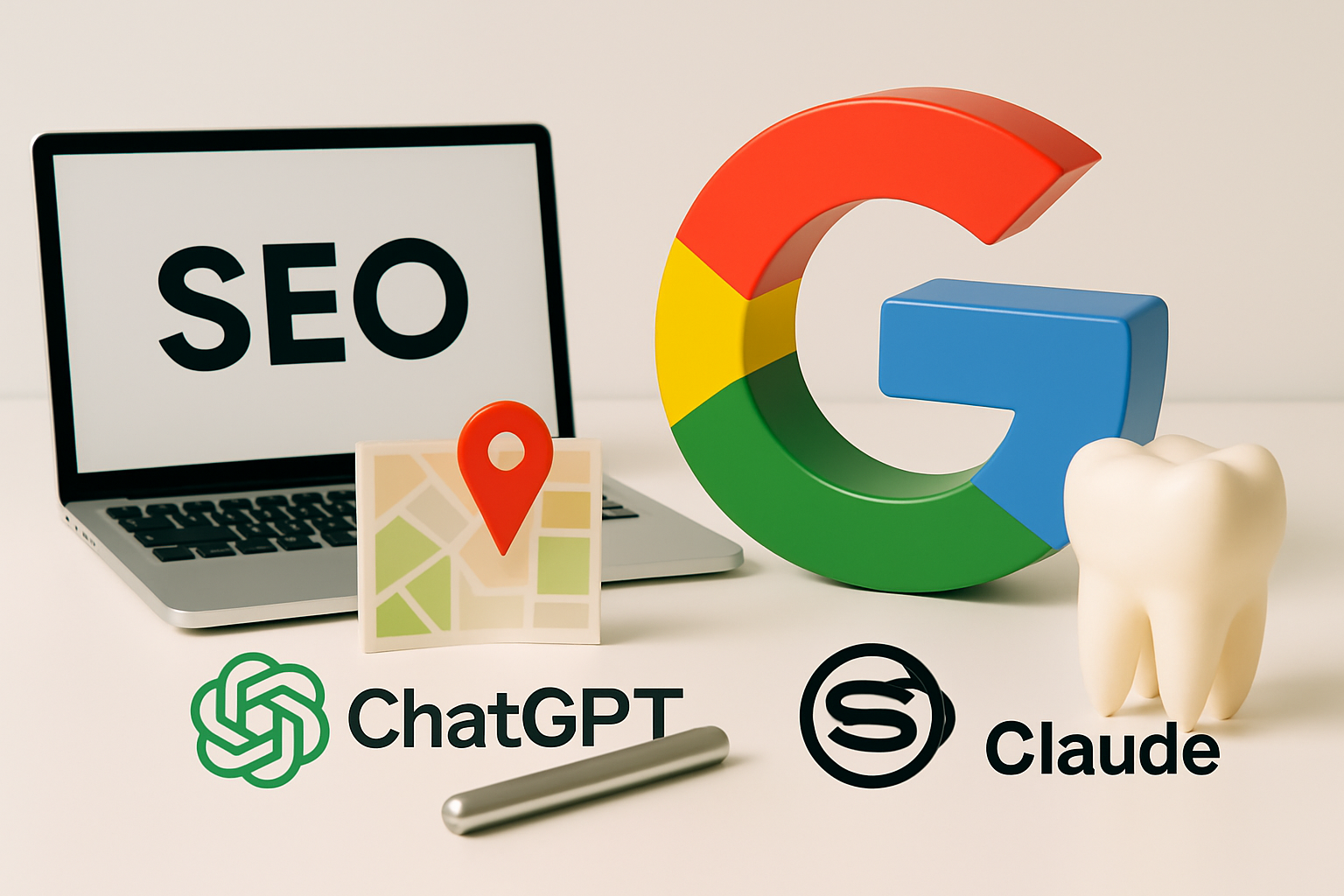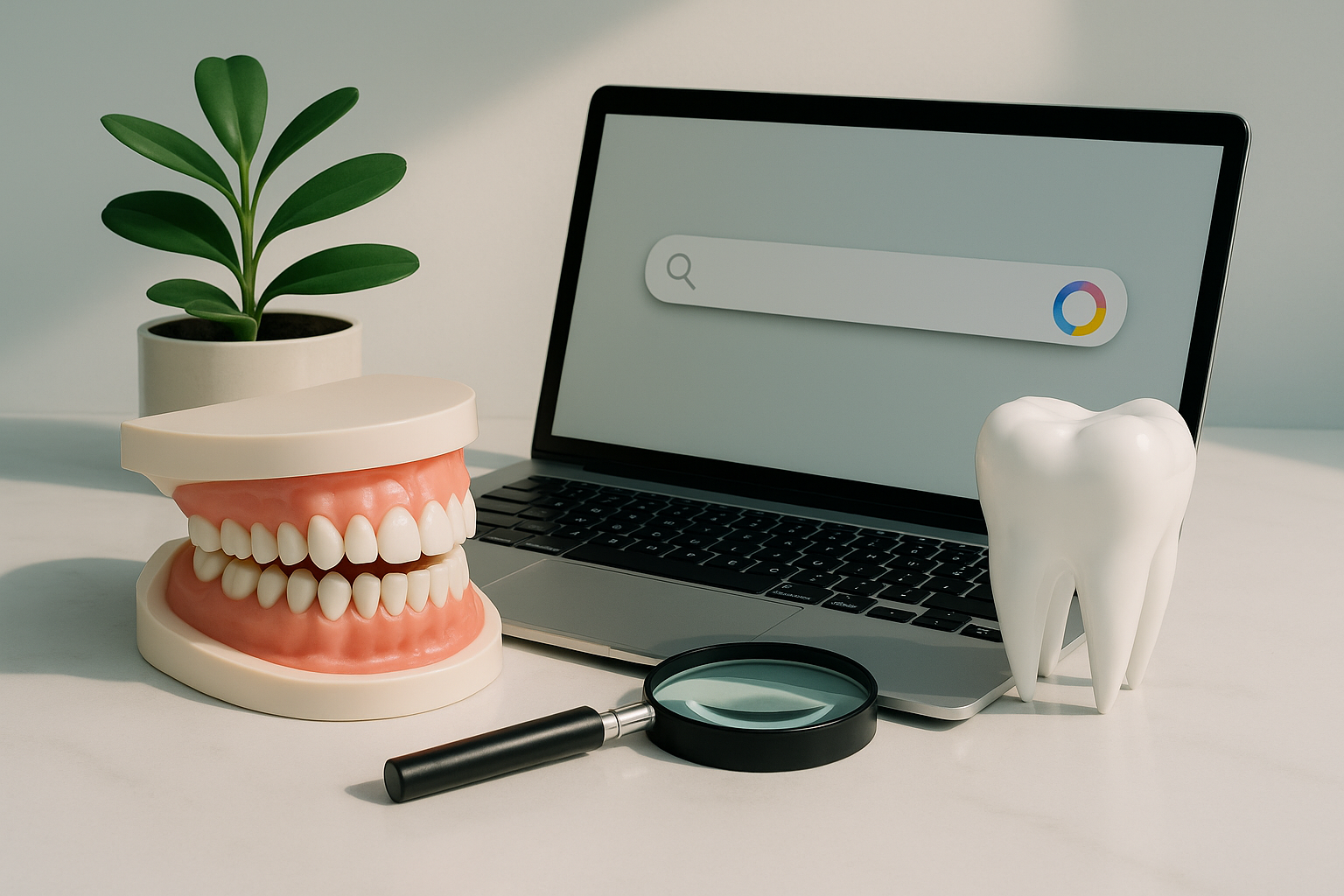The Future of Dental Marketing: Trends to Watch in the Next 5 Years
The dental industry, like all sectors, is in a constant state of evolution, driven by technological advancements, shifting patient expectations, and innovative marketing strategies. What worked effectively in dental marketing five years ago may be obsolete today, and what is cutting-edge now will likely be standard practice in the near future. For dental professionals and practice owners, staying ahead of these trends isn't just about curiosity; it's about ensuring the long-term viability, growth, and competitiveness of their practice.
At Digital Floss, we pride ourselves on being visionary partners, constantly analyzing the horizon to identify emerging trends and equip our clients with the strategies needed to thrive in tomorrow's landscape. This article will delve into the most significant trends poised to shape dental marketing over the next five years (2025-2030). We'll explore advancements in artificial intelligence, personalized patient experiences, data-driven decision-making, and the evolving role of digital platforms, providing a roadmap for dental practices to not only adapt but to lead in the future of patient acquisition and engagement.
The Ascendance of Artificial Intelligence (AI) and Machine Learning (ML)
AI and ML are not just buzzwords; they are rapidly becoming foundational technologies that will redefine dental marketing. While we’ve already touched upon AI’s current capabilities in diagnostics and practice management, its role in marketing will become even more sophisticated.
Key Trends:
- Hyper-Personalization at Scale: AI will enable dental practices to deliver highly personalized marketing messages and patient experiences at an unprecedented scale. This goes beyond basic segmentation to understanding individual patient preferences, behaviors, and even emotional states, allowing for tailored communications that resonate deeply. Imagine AI-driven chatbots that can answer complex patient questions, schedule appointments, and even offer personalized treatment recommendations based on a patient's history and expressed needs.
- Predictive Analytics for Patient Acquisition and Retention: ML algorithms will become adept at predicting patient behavior. This includes identifying potential new patients most likely to convert, predicting which existing patients are at risk of attrition, and even forecasting demand for specific services. This allows for proactive marketing interventions and more efficient resource allocation.
- Advanced Content Generation and Optimization: AI tools will assist in generating diverse marketing content, from blog post outlines and social media captions to video scripts and email sequences. More importantly, AI will optimize this content in real-time based on performance data, ensuring maximum engagement and conversion rates. This doesn't replace human creativity but augments it, freeing up marketers to focus on strategy and high-level creative direction.
- Enhanced Voice Search and Conversational AI: As smart devices become ubiquitous, voice search will continue to grow. AI will make conversational interfaces more natural and effective, allowing patients to interact with practices through voice commands for inquiries, bookings, and even virtual consultations. Optimizing for these conversational queries will be paramount.
- Automated Ad Campaign Optimization: AI will take over more of the heavy lifting in managing and optimizing paid advertising campaigns. From dynamic bidding strategies to audience targeting and creative optimization, AI will ensure ad spend is maximized for ROI, often outperforming human-managed campaigns due to its ability to process vast amounts of data instantaneously.
- Impact on Dental Practices: Practices that embrace AI will gain a significant competitive advantage, operating with greater efficiency, precision, and personalization in their marketing efforts. Those that lag will find it increasingly difficult to compete for patient attention and trust.
Personalized Patient Experiences and Hyper-Engagement
Beyond AI, the overarching trend will be a relentless focus on delivering highly personalized patient experiences, driven by data and enabled by technology. Patients expect seamless, convenient, and tailored interactions, mirroring their experiences with leading consumer brands.
Key Trends:
Patient Journey Orchestration: Marketing will shift from isolated campaigns to holistic patient journey orchestration. This means mapping every touchpoint—from initial search to post-treatment follow-up—and ensuring a consistent, personalized, and positive experience. Technology will enable practices to anticipate patient needs and deliver relevant information or services proactively.
Interactive and Immersive Content: Static content will give way to more interactive and immersive experiences. This includes:
Virtual Reality (VR) and Augmented Reality (AR): VR tours of dental offices, AR apps that allow patients to visualize smile transformations before treatment, or even VR experiences to reduce anxiety during procedures.
Interactive Quizzes and Assessments: Engaging tools on websites that help patients self-diagnose potential issues or understand treatment options, leading to more qualified leads.
Gamification: Incorporating game-like elements into patient education or loyalty programs to increase engagement and adherence to treatment plans.
Community Building and Micro-Influencers: While large-scale social media campaigns will continue, there will be a greater emphasis on building niche communities and leveraging micro-influencers (e.g., local health bloggers, satisfied patients with strong local networks). Authenticity and genuine connection will drive these efforts.
Tele-dentistry and Virtual Consultations: The acceleration of tele-dentistry will continue, moving beyond emergency triage to routine consultations, post-operative checks, and even initial patient assessments. Marketing will need to adapt to promote these virtual services effectively, emphasizing convenience and accessibility.
Seamless Integration of Online and Offline Experiences: The distinction between online and offline will further blur. Patients will expect a seamless transition from their digital interactions (e.g., online booking, virtual consultation) to their in-office experience. Marketing efforts will need to reflect and facilitate this integrated journey.
Impact on Dental Practices: Practices that prioritize patient experience, invest in interactive technologies, and foster genuine community connections will build stronger patient loyalty and attract new patients through positive word-of-mouth and digital advocacy. The focus will be on creating a memorable and personalized journey that differentiates the practice.
Data-Driven Decision Making and the Evolving Role of Digital Platforms
The future of dental marketing will be increasingly data-driven, moving away from guesswork to precise, measurable strategies. Concurrently, the digital platforms themselves will continue to evolve, demanding adaptive marketing approaches.
Key Trends:
- Advanced Analytics and Business Intelligence: Dental practices will leverage sophisticated analytics tools to gain deeper insights into patient demographics, treatment acceptance rates, marketing campaign performance, and patient lifetime value. This data will inform strategic decisions, optimize resource allocation, and identify growth opportunities. Dashboards providing real-time performance metrics will become standard.
- Unified Patient Data Platforms: The integration of various data sources—practice management software, marketing automation platforms, patient communication tools, and even wearable health devices—into a single, unified platform will provide a 360-degree view of each patient. This holistic data will enable truly personalized care and marketing.
- Privacy-First Marketing: With increasing concerns about data privacy and evolving regulations (e.g., HIPAA, GDPR, CCPA), dental marketing will become even more focused on privacy-compliant strategies. This will involve transparent data collection practices, secure data handling, and a greater emphasis on first-party data (data collected directly from patients with their consent).
- The Rise of Niche Platforms and Micro-Communities: While major platforms like Google and Meta will remain dominant, there will be a growing importance of niche platforms and micro-communities where specific patient segments gather. Marketing efforts will need to diversify to engage these highly targeted groups, often through authentic, community-led content.
- Continued Evolution of Search: Search will become even more multimodal, incorporating visual search (e.g., searching with an image of a dental issue), voice search, and AI-driven conversational search. SEO strategies will need to adapt to optimize for these diverse search modalities, focusing on semantic understanding and user intent rather than just keywords.
- Influencer Marketing (Micro and Local): The power of local influencers and micro-influencers (e.g., local food bloggers, community leaders, or even highly satisfied patients with a strong social presence) will grow. Their authentic recommendations carry significant weight within their specific communities, offering a highly effective form of word-of-mouth marketing.
- Ethical AI and Transparency: As AI becomes more integrated, there will be a greater emphasis on ethical AI practices and transparency in how AI is used in marketing and patient interactions. Practices will need to clearly communicate when AI is involved and ensure its use aligns with patient trust and privacy.
Impact on Dental Practices: Practices that embrace data analytics, prioritize patient privacy, and strategically diversify their digital presence will be better equipped to understand their patients, optimize their marketing spend, and adapt to the ever-changing digital landscape. The ability to interpret and act on data will be a core competency for successful dental marketing.
Conclusion: Navigating the Future of Dental Marketing with Digital Floss
The next five years promise a dynamic and transformative era for dental marketing. The convergence of advanced AI, the demand for hyper-personalized patient experiences, and increasingly sophisticated data analytics will reshape how dental practices attract, engage, and retain patients. For practices willing to embrace these changes, the opportunities for growth and enhanced patient care are immense.
However, navigating this rapidly evolving landscape can be daunting. It requires not only an understanding of emerging technologies but also the strategic foresight to integrate them effectively without losing the human touch that defines exceptional dental care. This is where Digital Floss excels. We are more than just a marketing agency; we are your strategic partner, constantly researching, adapting, and innovating to ensure your practice remains at the forefront of dental marketing.
We empower our clients to leverage the power of AI for precision targeting, craft authentic and engaging content that resonates deeply, and utilize data to make informed decisions that drive sustainable growth. Our goal is to equip your practice with the tools and strategies needed to not only adapt to the future of dental marketing but to lead it.
Are you ready to future-proof your dental practice and capitalize on the exciting trends shaping patient acquisition and engagement? Don’t get left behind. Contact Digital Floss today for a free marketing audit. Let us help you chart a course for success in the ever-evolving landscape of dental marketing.












